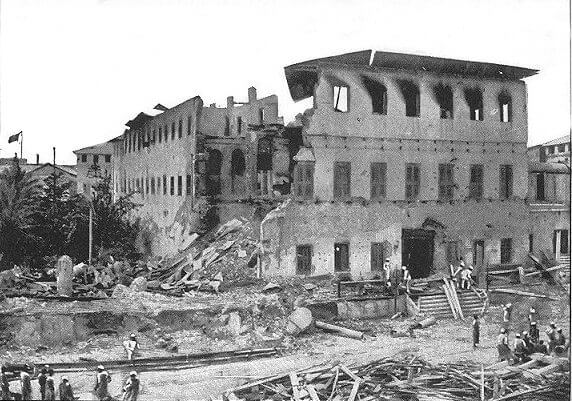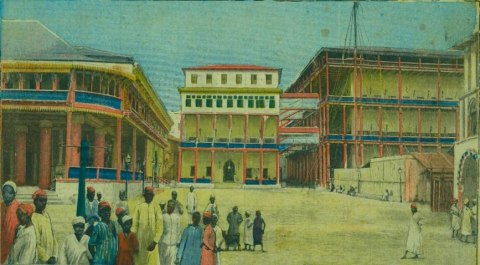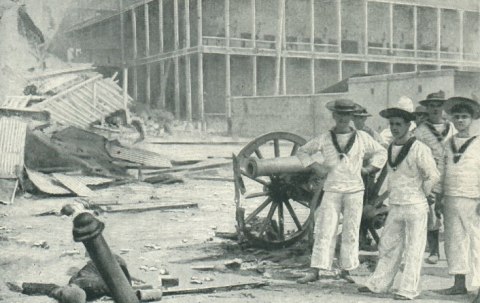Tanzania fought the world’s shortest war, it lasted less than 40mins

If only all wars were as short as the Anglo-Zanzibar War. Lasting only 38 minutes, this conflict — which took place off the coast of Tanzania in 1896 — is largely considered to be the shortest war in human history.
Under the Heligoland-Zanzibar treaty, signed between Germany and Britain in 1890, the island archipelago known as Zanzibar was placed under British control, while mainland Tanzania remained the possession of Imperial Germany.
Six years later, when the pro-British sultan of Zanzibar suddenly died, his cousin (and possible assassin) Khalid bin Barghash took on the role of sultan within hours of the leader’s death — all without the blessing of the British.

Not too happy about this suspected coup, Britain’s chief diplomat for the area, Basil Cave, was put in charge of resolving the conflict. By August 25, 1896, Khalid had gathered some 3,000 fighters and an impressive array of artillery around the palace to protect his reign.
That evening, three British men-of-war were in the nearby harbor (joined by an additional two ships the following morning). Cave sent one last ultimatum on the evening of the 26th, demanding evacuation of the palace by 9 a.m. the following morning.
READ ALSO: Tanzania’s president cancels Independence Day celebrations
Khalid replied one hour before the deadline: “We have no intention of hauling down our flag and we do not believe you would open fire on us.” He was sorely mistaken, and the British opened fire at 9:02 a.m.
After a 38-minute bombardment (although precise counts for the duration vary slightly) — during which Khalid escaped through a back exit — the palace lowered its flag and history’s shortest war came to an end.

For such a short war, the casualty rate was surprisingly high with over 500 of Khalid’s fighters killed or wounded, mainly due to the high explosive shells exploding on the palace’s flimsy structure. One British petty officer was also severely injured, but later recovered in hospital.
Find out more about this war by clicking on this link.
Source: Interesting Facts
Oral Ofori is Founder and Publisher at www.TheAfricanDream.net, a digital storyteller and producer, and also an information and research consultant.




